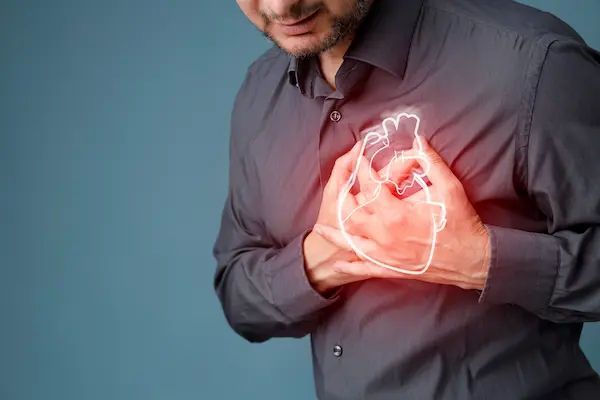- male
- 50 Years
- 07/02/2025
I've been dealing with high blood pressure for the last six years, and I'm currently taking Olmesar 20 H. This past week, my blood pressure readings have been fluctuating between 13590 and 14595. What can I do to help lower my blood pressure? I'm a bit concerned about these numbers.
Answered by 1 Apollo Doctors
It seems like your blood pressure is slightly elevated despite taking Olmesar 20 H. To help lower your blood pressure, you can try increasing your physical activity, reducing your salt intake, maintaining a healthy weight, and managing stress. In addition, you may need a change in medication dosage or a different medication. I recommend consulting your doctor to adjust your treatment plan.
Dr. Anshul Suggests...
Consult a Cardiologist
Answered 04/07/2025
0
0

More Cardiology Health Queries
View allCan I take Dilzem CD 120 about 40 minutes after Rabsec PPI? Are there any side effects I should be worried about?
It is generally safe to take Dilzem CD 120 after 40 minutes of Rabsec (PPI). However, it is important to note that there may be a potential interaction between these two medications. Dilzem CD 120 is a calcium channel blocker used to treat high blood pressure and chest pain, while Rabsec (PPI) is a proton pump inhibitor used to reduce stomach acid. Some potential side effects of taking these medications together may include an increased risk of low blood pressure, slow heart rate, and potential drug interactions. It is always best to consult with your healthcare provider before taking these medications together to ensure safety and effectiveness.
Answered by 1 Apollo Doctors
I'm having these episodes of anxiety throughout the day, and even when I'm calm and just doing my usual stuff, it sometimes feels like my heart skips a beat or beats really hard. It freaks me out. I can't tell if it's just the anxiety acting up or if there's something else going on. Any idea what's causing this? I'm really worried.
It sounds like you may be experiencing palpitations, which can be a common symptom of anxiety. However, it's important to rule out any other underlying medical conditions that may be causing these symptoms. I recommend you try taking Propranolol (Inderal) 10mg twice daily to help with both the anxiety and palpitations. Additionally, practicing relaxation techniques such as deep breathing exercises or mindfulness meditation may also be beneficial in managing your symptoms.
Answered by 1 Apollo Doctors
I've been having this strong pulse in my neck every time I lie down, and it's really affecting my sleepit's like I can feel my heart pounding too hard, and sometimes it makes me feel breathless with some chest pain coming and going. I saw a cardiologist, and they said my heart's okay since my ECG and 2d echo came back normal. My thyroids fine, and my blood pressure usually sits between 11060 to 11075. I'm on Inderal 10 mg, been taking it for about 12 days now. What could be causing these issues, and how can I fix it?
Yes continue that medicine and follow your doctors advice,no need to worry you will be fine
Answered by 1 Apollo Doctors
Disclaimer: Answers on Apollo 247 are not intended to replace your doctor advice. Always seek help of a professional doctor in case of an medical emergency or ailment.

_3.webp)


.webp)